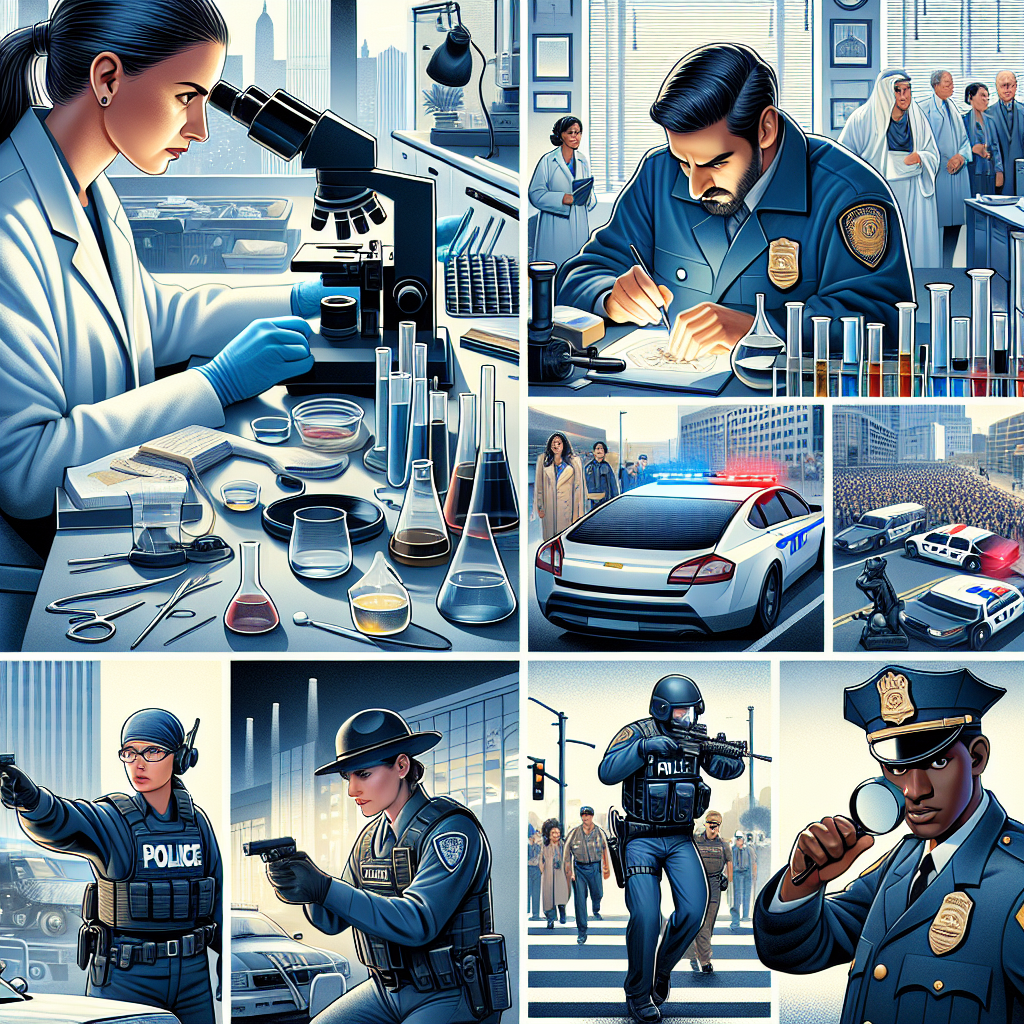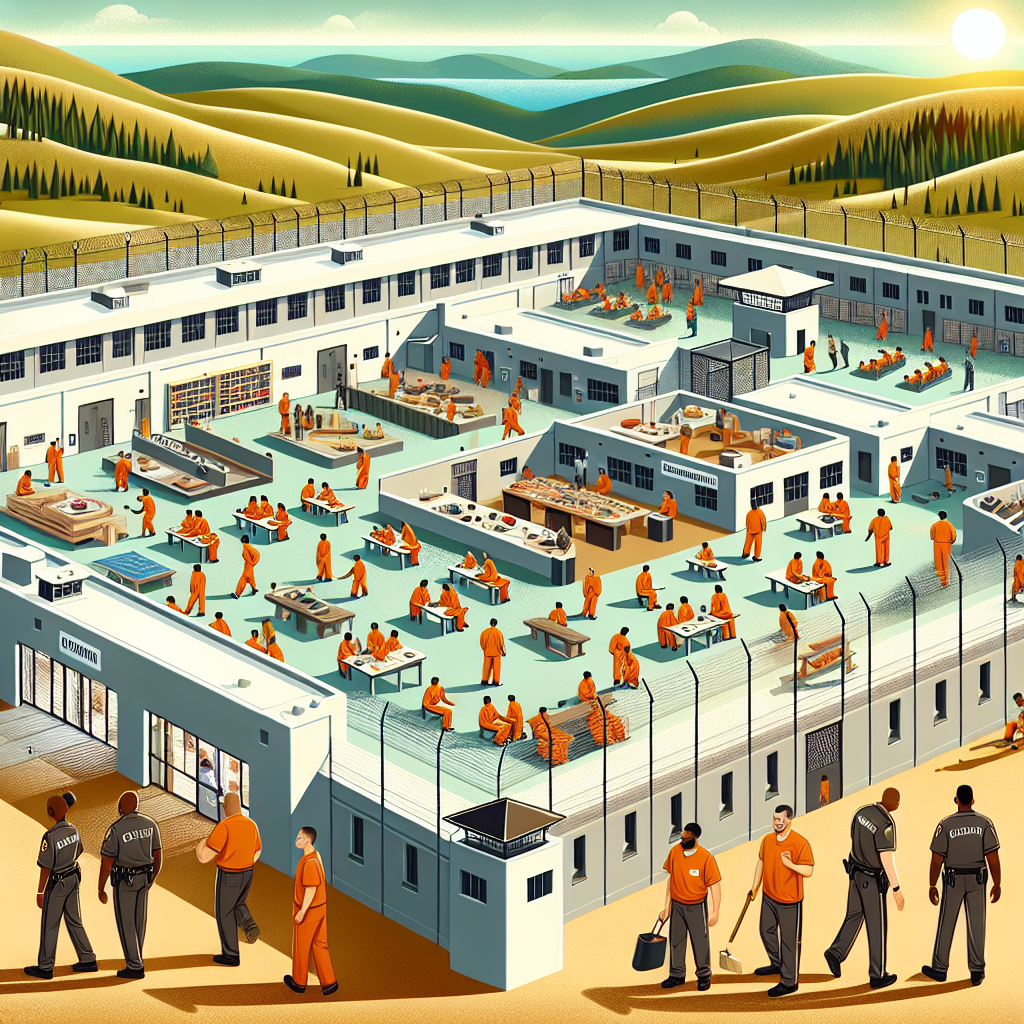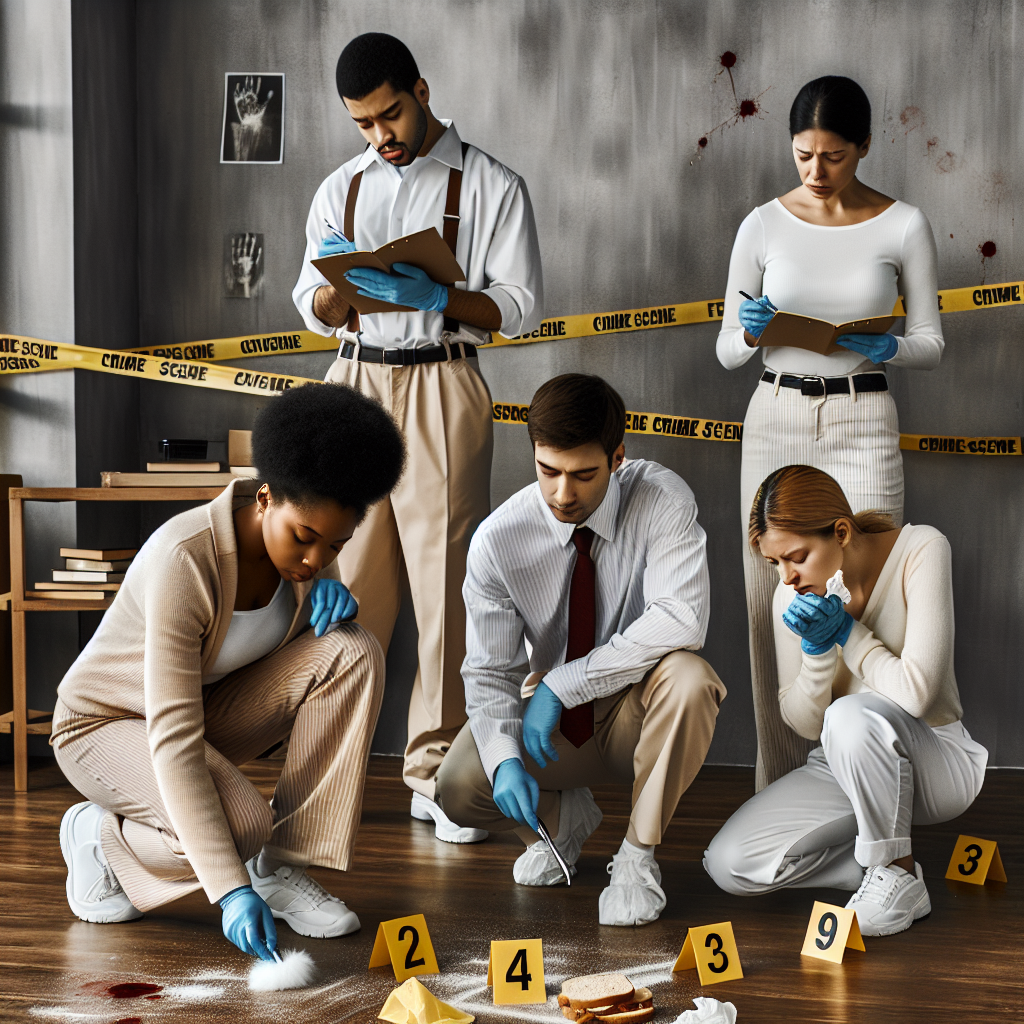Criminal Justice Bachelor Degree Jobs. A criminal justice bachelor’s degree opens up a world of career opportunities. It’s a versatile qualification that can lead to a variety of roles in law enforcement, legal professions, and beyond.
But what exactly can you do with a criminal justice degree? This is a question many students and recent graduates often ask.
The answer is far from simple. The field of criminal justice is vast and diverse, encompassing everything from police work to victim advocacy.
In this article, we’ll explore the many career paths available to those with a criminal justice bachelor’s degree. We’ll delve into the roles, responsibilities, and potential salaries of various criminal justice jobs.
Whether you’re a current student, a recent graduate, or a professional considering a career change, this guide will provide valuable insights. It will help you understand the breadth of opportunities a criminal justice degree can offer.
So, if you’re curious about the potential jobs your criminal justice degree can lead to, read on. Let’s embark on this journey of exploration together, and discover the exciting career paths that await you in the field of criminal justice.
The Value of a Criminal Justice Bachelor’s Degree

A bachelor’s degree in criminal justice serves as a cornerstone for a meaningful and impactful career. In today’s world, where safety and justice are paramount, this degree is more relevant than ever.
Employers value the skills that graduates bring. These skills include analytical thinking, strong ethics, and a thorough understanding of the law. Moreover, your degree provides a solid foundation in the fundamental aspects of criminal justice.
A criminal justice degree also offers extensive career flexibility. You can work in many areas, including law enforcement, legal fields, private security, and social services.
Here are some reasons why a criminal justice bachelor’s degree is valuable:
- Provides a deep understanding of justice-related concepts.
- Offers career diversity in public and private sectors.
- Prepares for roles in law enforcement and legal professions.
- Fosters skills in communication and critical thinking.
- Opens pathways for advanced education and specialization.
The importance of a degree goes beyond immediate job prospects. It can lead to leadership roles or advanced specializations with further education and experience.
The education you receive can also be pivotal in pursuing roles in emerging areas. Fields such as cybercrime and data analysis offer new opportunities for graduates.
This degree’s value is evident in the wide range of opportunities and the potential for a lifelong career. It’s a testament to the commitment of individuals driven by a passion for justice.
Understanding the Criminal Justice System
The criminal justice system is the framework that ensures law and order are maintained. It consists of three main segments: law enforcement, the courts, and corrections.
Understanding how these components interact is crucial. Law enforcement involves the police and other agencies tasked with upholding the law. Their role is to investigate crimes and apprehend offenders.
The court system adjudicates cases and ensures fair trial processes. It plays a pivotal role in interpreting laws. Corrections focus on rehabilitating offenders and ensuring they reintegrate into society.
Through a criminal justice degree, students gain insight into these segments. This knowledge equips them to navigate the system effectively.
The Versatility of a Criminal Justice Degree
One of the greatest strengths of a criminal justice degree is its versatility. Graduates can explore various career paths across different sectors.
For instance, they can pursue roles in local, state, or federal law enforcement Criminal Justice Bachelor Degree Jobs. Alternatively, positions in legal support roles, such as paralegals, are also viable options.
The degree opens doors to work in corporate security, legal consultancy, or policy-making. Each path requires different skills, making the degree adaptable to diverse interests.
Moreover, this versatility extends to the potential for specialization. Graduates can delve into forensic science, cybercrime, or juvenile justice.
Such adaptability ensures that no matter the interest, there’s a niche in criminal justice waiting to be explored. This is why many find a criminal justice degree a worthwhile investment.
Law Enforcement Careers

A criminal justice degree serves as a gateway to various law enforcement careers. These roles are vital for community safety and justice enforcement. Graduates find meaningful work protecting the public and upholding laws.
Law enforcement careers are not limited to traditional policing. They encompass a wide array of positions within local, state, and federal agencies. Each role demands dedication, a keen eye for detail, and often, physical fitness.
Here are some key law enforcement roles:
- Police Officers: Maintaining public order and safety.
- Detectives: Investigating criminal activities and gathering evidence.
- Federal Agents: Enforcing federal laws and regulations.
- Wildlife Officers: Protecting natural resources and enforcing environmental laws.
- Public Safety Officers: Ensuring security in community events and public spaces.
Those in law enforcement positions can specialize in areas such as cybercrime, narcotics, or human trafficking. Each specialization requires unique skills and offers distinct challenges. This aspect makes the field dynamic and intriguing for many.
The job outlook for law enforcement careers remains stable, with opportunities for advancement. Continuous training and education are essential to stay abreast of new regulations and technological advancements.
Working in law enforcement calls for a strong moral compass. Officers often face challenging situations requiring critical decision-making. Hence, integrity and a commitment to justice are pivotal in these roles.
Police Officer and Detective Roles
Becoming a police officer is often the first step for many criminal justice graduates. Police officers are front-line protectors, responding to emergencies and enforcing laws. They play a crucial role in maintaining peace within communities.
Detective roles allow for deeper engagement in solving crimes. Detectives specialize in investigations, gathering evidence, and interviewing witnesses. This career path requires strong analytical skills and attention to detail.
Both roles demand excellent communication skills for interacting with the public and colleagues. Officers must also remain physically fit to handle the physical demands of the job.
Career advancement in these areas is possible through experience and further education. Officers and detectives can move into leadership roles or specialize further. Their work is vital for the justice system, often shaping public trust in law enforcement.
Federal Agency Opportunities
A criminal justice degree can lead to prestigious roles in federal agencies. These opportunities offer the chance to contribute to national security and policy enforcement. Agencies such as the FBI, DEA, and Homeland Security are notable employers.
Federal agents work on complex cases that affect national or global security. Their work spans a variety of disciplines, from cybercrime to counterterrorism. These roles require resilience and a deep understanding of the law.
The entry process for federal agencies often includes rigorous testing and training. Candidates must demonstrate skills in analysis, communication, and decision-making.
These positions offer a diverse range of career paths. Agents may work in intelligence analysis, field operations, or technology innovation. Federal roles often come with the potential for international assignments or inter-agency collaborations.
Working in federal law enforcement provides a chance to impact large-scale policy and justice. The roles are challenging yet highly rewarding, reflecting a deep commitment to national service.
Legal and Court System Jobs

A criminal justice degree opens numerous doors within the legal and court systems. Graduates can work behind the scenes to ensure justice prevails. Legal system roles offer diverse and fulfilling career paths.
Individuals with a background in criminal justice bring essential skills to these roles. They understand legal procedures and can effectively support lawyers and court officials. This expertise is crucial in maintaining the efficacy of the judicial system.
Here are some key positions within the legal and court system:
- Paralegal and Legal Assistants: Supporting attorneys with case preparation.
- Court Clerks: Managing court records and documentation.
- Bailiffs: Maintaining security and order in the courtroom.
- Legal Researchers: Assisting in gathering legal precedents and case law.
- Court Reporters: Creating accurate records of court proceedings.
These jobs require a keen eye for detail and excellent organizational skills. The ability to communicate clearly and process large volumes of information is also vital. Many positions serve as stepping stones to further career advancement in the legal field.
Working within the court system offers a sense of purpose by aiding in the delivery of justice. Legal professionals are integral to ensuring the rights of individuals are respected and upheld. Their work helps in maintaining the integrity of the judicial process.
Legal and court system positions provide job stability with opportunities for growth. As technology evolves, adapting to new tools and systems becomes an essential aspect of these roles. Continuous learning and professional development are key to staying relevant.
Legal system roles require a high standard of ethics and confidentiality. The trust placed in legal professionals underscores the importance of integrity in these positions. Upholding these values helps maintain the credibility of the legal system.
Paralegal and Legal Assistant Positions
Paralegals and legal assistants form the backbone of many legal teams. They provide crucial support in preparing cases and managing legal documents. Their work helps attorneys focus on client representation and courtroom proceedings.
These roles demand strong research and writing skills. Paralegals often summarize documents, draft legal briefs, and assist in case management. Their ability to organize and process information efficiently is invaluable.
Many paralegals specialize in areas such as criminal law, family law, or corporate law. Specialization allows them to bring expertise to complex legal matters. It also opens the door to further career advancement, such as becoming a certified paralegal.
Working as a paralegal offers stability and a path to continuous growth. With a criminal justice degree, individuals can leverage their legal knowledge to excel. The role provides an opportunity to contribute significantly to the legal system.
Court Administration and Support Roles
Court administration roles are crucial in ensuring the smooth operation of judicial processes. Professionals in these positions handle logistics and manage court resources. Their work supports judges, attorneys, and all parties involved in legal proceedings.
Court clerks are responsible for maintaining and organizing court records. They ensure that all legal documents are filed and accessible as needed. This role calls for meticulous attention to detail and an understanding of legal terminology.
Bailiffs, on the other hand, maintain order and security in the courtroom. They protect judges, juries, and visitors, ensuring that court procedures follow protocol. This role often requires previous experience in law enforcement or security.
Court administration roles offer career stability and a chance to work closely with the judicial system. These positions are vital for the efficient operation of courts and the fair delivery of justice. For those passionate about the legal field, they provide a fulfilling career path.
Corrections and Rehabilitation

Corrections and rehabilitation are crucial components of the criminal justice system. They focus on supervising offenders and helping them reintegrate into society. A criminal justice degree provides the foundational skills necessary for these roles.
Corrections officers and rehabilitation specialists work in various settings. Prisons, jails, and community-based programs are common workplaces. Each setting offers unique challenges and opportunities to impact lives positively.
Professionals in these fields focus on ensuring security and promoting rehabilitation. They monitor inmate behavior and facilitate educational and treatment programs. These efforts aim to reduce recidivism and assist offenders in making positive life changes.
Here are some key corrections and rehabilitation roles:
- Corrections Officer: Supervise inmates in prisons and jails.
- Probation Officer: Monitor offenders on probation instead of serving time.
- Parole Officer: Help offenders reintegrate into the community post-release.
- Rehabilitation Counselor: Assist inmates with personal and vocational development.
- Substance Abuse Counselor: Address addiction issues within the inmate population.
These roles require resilience, strong ethical standards, and excellent communication skills. Professionals must also be adept at diffusing conflicts and maintaining safety. Working in corrections can be demanding yet rewarding for those passionate about criminal justice.
The field offers diverse career advancement pathways. Opportunities for specialization in areas like counseling or administration are available. A criminal justice degree helps individuals pursue these dynamic and impactful careers.
Corrections Officer: A Day in the Life
Corrections officers play a vital role in maintaining order within correctional facilities. Their primary responsibility is ensuring the safety and security of inmates and staff. They conduct routine checks, supervise inmate activities, and respond to incidents.
Officers start their day with briefings about facility updates. These include changes in inmate behavior and new security protocols. Once informed, officers begin monitoring inmate interactions and perform security checks.
Working as a corrections officer demands quick decision-making and conflict resolution skills. Officers must enforce rules while maintaining professional relationships with inmates. A typical day involves managing varied challenges, making the job dynamic.
This role provides professionals with a unique perspective on criminal behavior and rehabilitation. For those committed to justice and rehabilitation, being a corrections officer offers a fulfilling career path. It’s a position where every action contributes directly to the safety and order of the facility.
Probation and Community Control Careers
Probation officers focus on supervising offenders outside prison walls. They help individuals adhere to the terms of their probation, ensuring public safety. This role bridges the gap between the legal system and community reintegration.
Probation officers conduct regular meetings with offenders. They assess rehabilitation progress and offer guidance on meeting probation conditions. This involves collaborating with community resources and agencies to provide support services.
The role of a probation officer is essential for successful community reentry. Officers work to reduce re-offending by promoting personal development and accountability. This proactive approach enhances public safety and supports offender rehabilitation.
A career in probation offers variety and direct impact. Officers interact with diverse individuals and develop tailored rehabilitation plans. Those in the field find it rewarding to see positive changes in the lives they influence. For criminal justice graduates, this career path is both challenging and gratifying.
Forensic and Crime Analysis

Forensic and crime analysis are integral facets of modern criminal justice practices Criminal Justice Bachelor Degree Jobs. These fields focus on uncovering evidence and analyzing crime patterns to solve cases. Forensic science and crime analysis combine scientific expertise with investigative work.
Forensic science technicians, for example, gather and process physical evidence. They work in laboratories, evaluating materials like DNA, fingerprints, and other trace evidence. Their findings are crucial for solving crimes and securing convictions.
Crime analysts, on the other hand, delve into data-driven strategies. They analyze crime trends and patterns to assist law enforcement agencies. Their insights aid in predicting criminal activity and deploying resources more effectively.
Forensic and crime analysis careers offer a unique blend of challenges and excitement Criminal Justice Bachelor Degree Jobs. Here’s a look at some roles in this area:
- Forensic Science Technician: Process and analyze crime scene evidence.
- Crime Analyst: Evaluate data to develop crime prevention strategies.
- Digital Forensics Expert: Examine digital media for relevant evidence.
- Ballistics Specialist: Study firearms-related evidence at crime scenes.
- Toxicologist: Analyze substances and their effects in legal contexts.
These positions require meticulous attention to detail and a strong scientific background. Professionals in this field play a vital role in the justice system, contributing to public safety and legal integrity. The cutting-edge nature of this field keeps it evolving, making it an exciting career choice.
Forensic Science Technicians
Forensic science technicians play a pivotal role in crime investigations. They specialize in collecting and analyzing physical evidence from crime scenes. Their work is often the backbone of criminal cases, providing indispensable proof.
In the laboratory, technicians process a wide array of materials, from blood samples to fibers. Their analysis helps reconstruct crime scenes and establish links between suspects and victims. This work requires precision and adherence to strict procedural standards.
Working as a forensic science technician offers a dynamic and impactful career. Those in this role must communicate effectively with detectives and attorneys. This collaborative effort ensures that their findings support the investigation and prosecution processes.
Crime Analysts and Data-Driven Policing
Crime analysts focus on using data to enhance crime prevention. They identify trends, patterns, and hotspots of criminal activity. This analytical approach aids law enforcement in efficiently allocating resources.
By leveraging data, crime analysts help predict future crimes and devise strategies to mitigate them. These efforts are essential for proactive policing, reducing response times, and improving community safety. Analysts often present their findings to law enforcement leaders and community stakeholders.
This career is ideal for those who love solving puzzles and working with numbers. Crime analysts play a significant role in shaping effective policing strategies. Their insights and recommendations ensure law enforcement efforts are both strategic and targeted. This makes a meaningful difference in reducing crime rates and enhancing public trust.
Private Security and Consulting
The private security sector is a broad and vital field within criminal justice. As businesses and individuals seek to protect assets and privacy, the demand for skilled security professionals grows. This sector includes security management, consultancy, and private investigation.
Private security roles can vary widely. Professionals might work with corporate clients, managing security teams or installing advanced systems. Consultants often develop security plans to prevent breaches and maintain safety.
Here’s a glimpse of possible roles within this field:
- Security Manager: Oversee security operations and manage personnel.
- Security Consultant: Advise clients on effective security protocols.
- Private Investigator: Conduct investigations and gather information.
- Loss Prevention Specialist: Focus on reducing theft and asset loss.
- Risk Assessment Specialist: Evaluate threats and create mitigation strategies.
These positions require a sharp eye for detail and analytical thinking. Professionals must navigate complex scenarios, often under pressure. A background in criminal justice equips individuals with the necessary skills to excel.
Security Management and Consultancy Roles
Security managers play crucial roles in overseeing safety operations for various organizations. They coordinate security personnel and implement robust strategies to safeguard people and property. Efficiency and leadership skills are key for success in these roles.
Consultants, on the other hand, evaluate existing security systems and devise improvement plans. They work with clients to tailor solutions, addressing specific security vulnerabilities. Consultants often draw on broad knowledge of technologies and threat assessment.
Private Investigation and Loss Prevention
Private investigators handle a spectrum of cases, from background checks to surveillance. They gather and analyze information to support legal processes or client needs. Discretion and problem-solving are vital traits in this line of work.
Loss prevention specialists focus on minimizing theft and protecting assets within retail and corporate environments. They implement preventative measures and investigate incidents of theft or fraud. Their work helps reduce financial losses and deter criminal activity, enhancing the overall safety and profitability of businesses.
Victim Advocacy and Support Services

The field of victim advocacy is essential to the criminal justice system. Victim advocates provide crucial support and assistance to those affected by crime. Their work ensures that victims receive the help they need to recover and navigate the justice process.
Advocates serve as liaisons between victims and law enforcement Criminal Justice Bachelor Degree Jobs. They ensure victims are informed about their rights and court proceedings. These professionals offer emotional support and practical assistance throughout.
Victim advocacy roles can vary, including:
- Legal Advocacy: Helping victims understand legal proceedings.
- Crisis Intervention: Providing immediate support post-crime.
- Long-term Support: Assisting with ongoing needs and recovery.
- Resource Coordination: Connecting victims with local services.
- Outreach Programs: Educating communities about victim rights.
These roles require empathy, patience, and excellent communication skills. Advocates play an instrumental part in restoring victims’ lives and helping them regain stability.
The Role of Victim Advocates
Victim advocates are dedicated to offering guidance and comfort to those impacted by crime. They help victims navigate the often overwhelming criminal justice system. By working closely with police and legal teams, advocates ensure victims’ voices are heard and respected.
In their roles, advocates assess individual needs and coordinate appropriate services. They provide a supportive presence, ensuring that victims understand their rights and the resources available to them. Effective advocates empower victims by helping them regain control over their lives.
Support Services for Victims of Crime
Support services for crime victims are varied and tailored to meet diverse needs. These services might include counseling, legal assistance, and emergency housing. By providing such support, advocates help mitigate the trauma victims experience.
Furthermore, these services ensure victims have access to essential resources, aiding their recovery and wellbeing. Through collaboration with community organizations, advocates ensure a comprehensive network of support is available. This network facilitates healing and a sense of safety for victims as they rebuild their lives.
Preparing for a Criminal Justice Career

Embarking on a career in criminal justice requires careful preparation. It involves more than just academic learning. Prospective professionals need to be proactive in gaining experience and building connections.
Internships play a crucial role in career preparation. They provide hands-on experience in real-world environments. This can make a candidate more attractive to potential employers.
Networking with industry professionals is equally important. Building relationships can lead to mentorship opportunities and job referrals. Networking can provide insights into the latest industry trends and expectations.
To remain competitive, consider the following strategies:
- Enroll in relevant internships to gain practical experience.
- Attend industry conferences and seminars for networking opportunities.
- Pursue additional certifications in specialized areas.
- Utilize career services offered by educational institutions.
- Stay informed about industry developments through professional associations.
A well-prepared candidate stands out in the competitive field of criminal justice. By actively seeking opportunities to learn and connect, you build a strong foundation for a successful career.
Internships, Networking, and Continuing Education
Internships are invaluable for gaining practical experience Criminal Justice Bachelor Degree Jobs. They allow students to apply what they’ve learned in real settings. Such experiences are often crucial stepping stones to full-time positions.
Networking complements internships by expanding your professional contacts. It opens doors to unadvertised opportunities and provides mentorship. Meanwhile, continuing education keeps skills sharp and knowledge current. This ensures you remain a competitive candidate in the ever-evolving criminal justice landscape.
The Importance of Soft Skills and Ethics
Soft skills are as vital as technical skills in criminal justice roles. Effective communication, problem-solving, and teamwork are key competencies employers seek Criminal Justice Bachelor Degree Jobs. These skills help professionals navigate complex situations successfully.
Ethics is another cornerstone. The field demands integrity and a strong moral compass. Upholding ethical standards enhances trust and ensures fair treatment. Professionals who demonstrate both strong soft skills and ethical behavior excel in their careers, reflecting positively on the criminal justice system as a whole.
Your Future in Criminal Justice
The field of criminal justice offers a wide array of career paths. A bachelor’s degree in this area opens numerous opportunities. These range from law enforcement to victim advocacy and beyond.
Each role plays a crucial part in maintaining societal order and justice. As the criminal justice system evolves, so do the careers within it. Professionals must adapt to changes and continuously seek improvement.
A criminal justice degree is not just about landing a job. It’s about making a difference in communities and the broader society. By remaining committed to growth and ethics, you can build a rewarding career.
Embracing Diversity and Technology in Criminal Justice
Diversity and technology are reshaping criminal justice. Inclusivity in the workforce brings varied perspectives. This diversity leads to more effective problem-solving and equitable practices.
Meanwhile, technology enhances efficiency and precision. Professionals who adapt to these advancements enhance their impact and professional growth.
Advancing Your Career with a Criminal Justice Degree
Criminal Justice Bachelor Degree Jobs. Career advancement requires strategic effort. Seek leadership roles and explore further education. Specialize in areas like cybercrime or forensic analysis to increase opportunities.
Active participation in professional organizations can boost your career. They provide learning, networking, and development prospects. With dedication and foresight, your criminal justice degree can lead to a fulfilling career.




